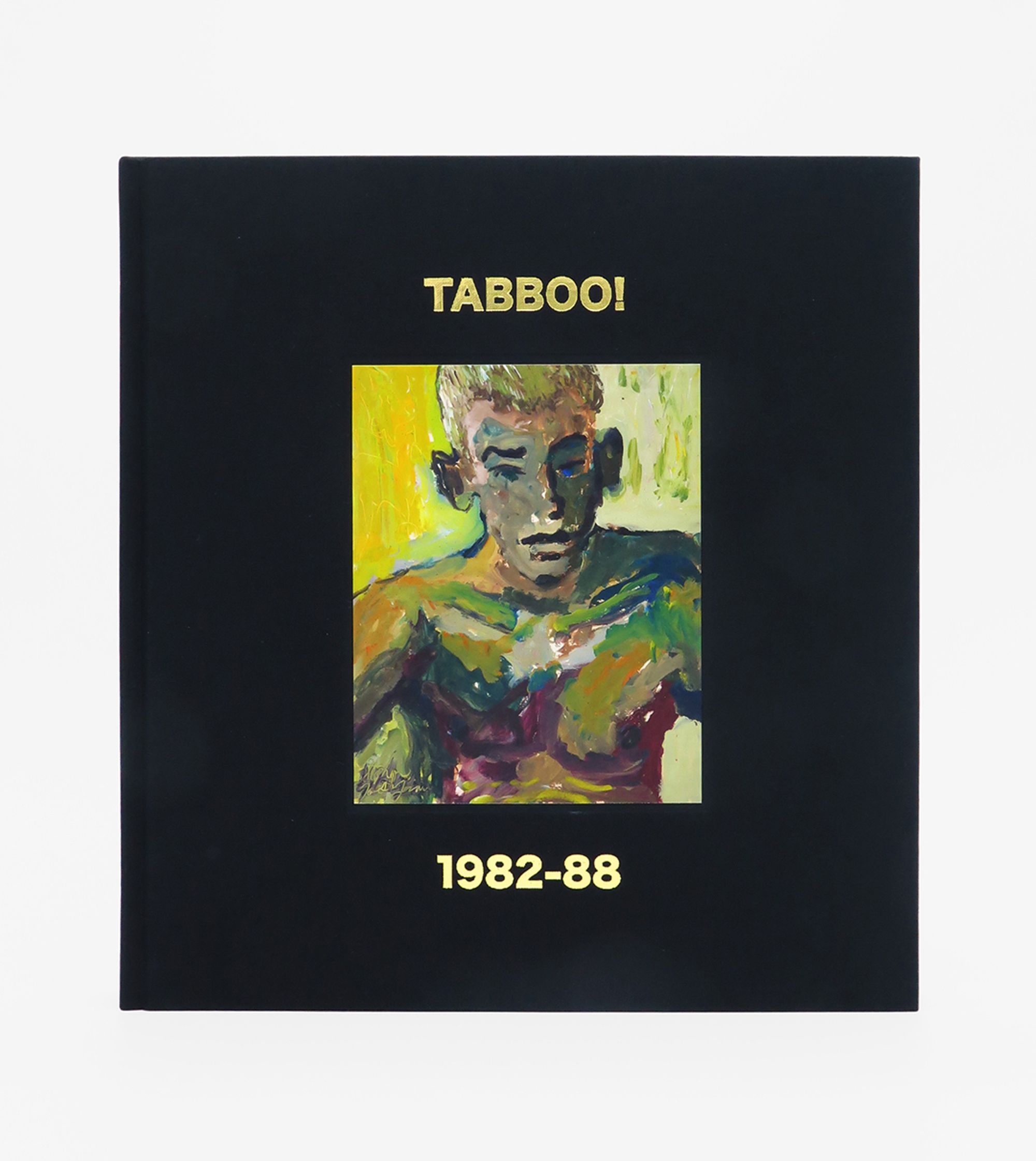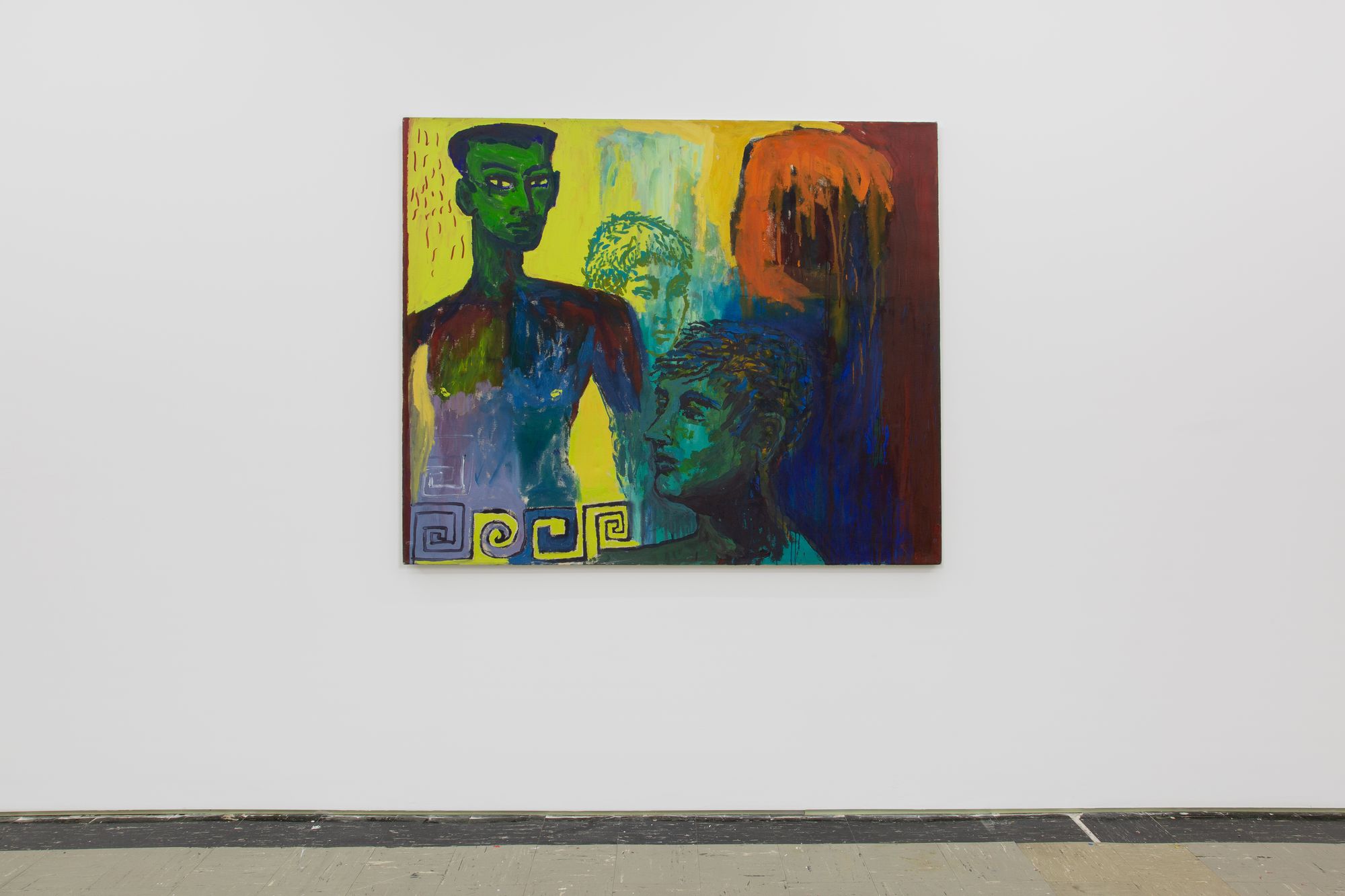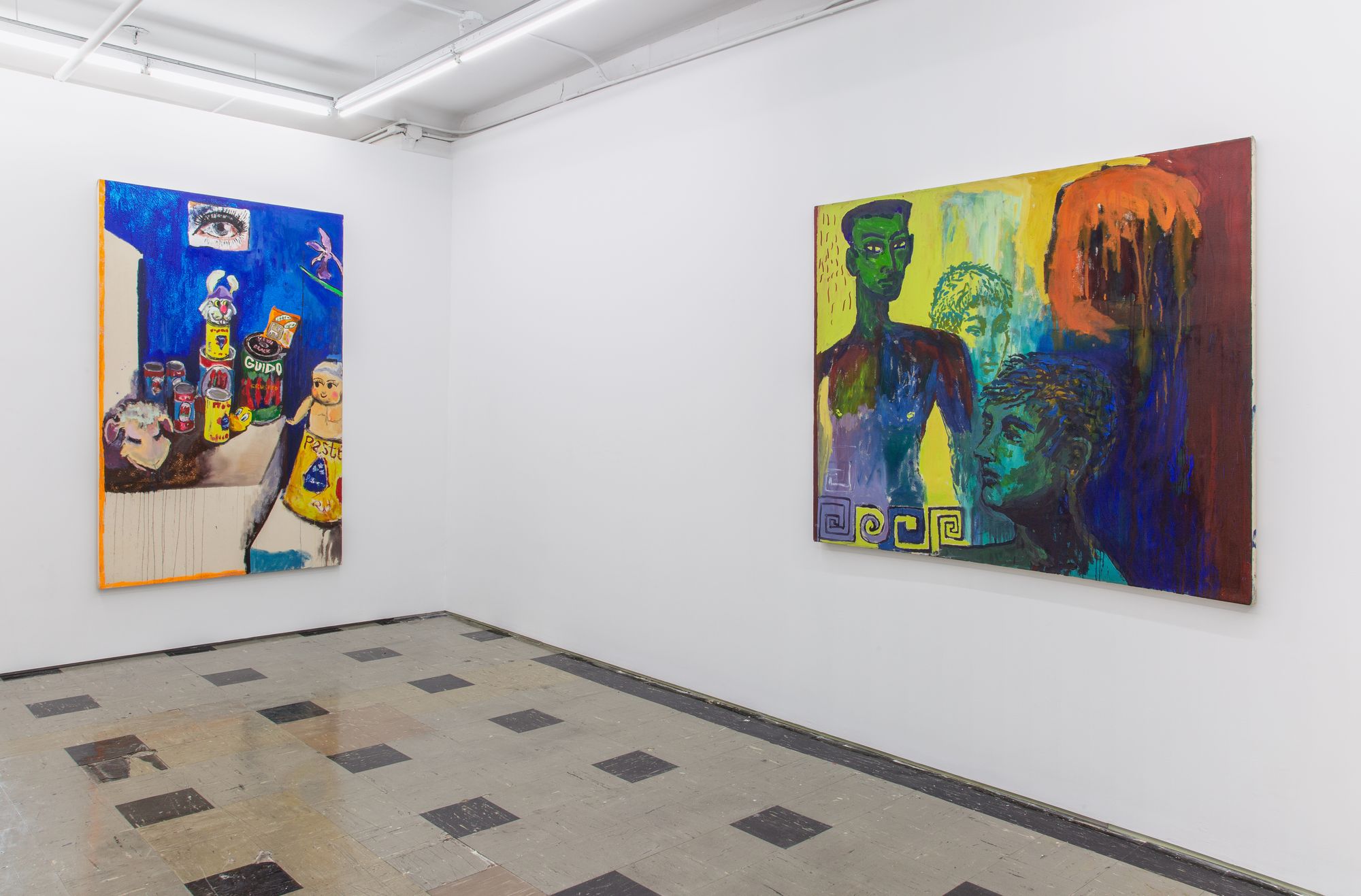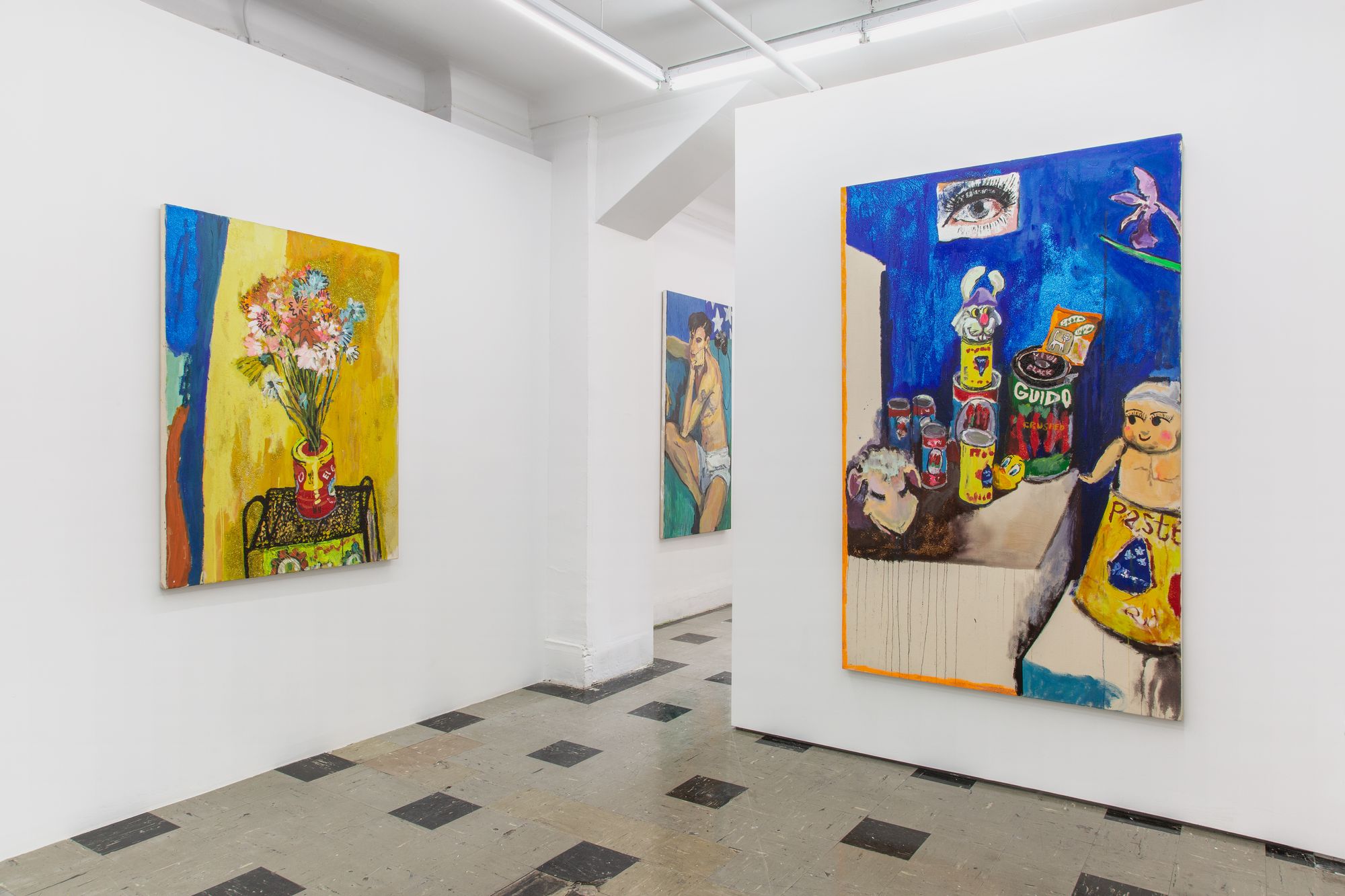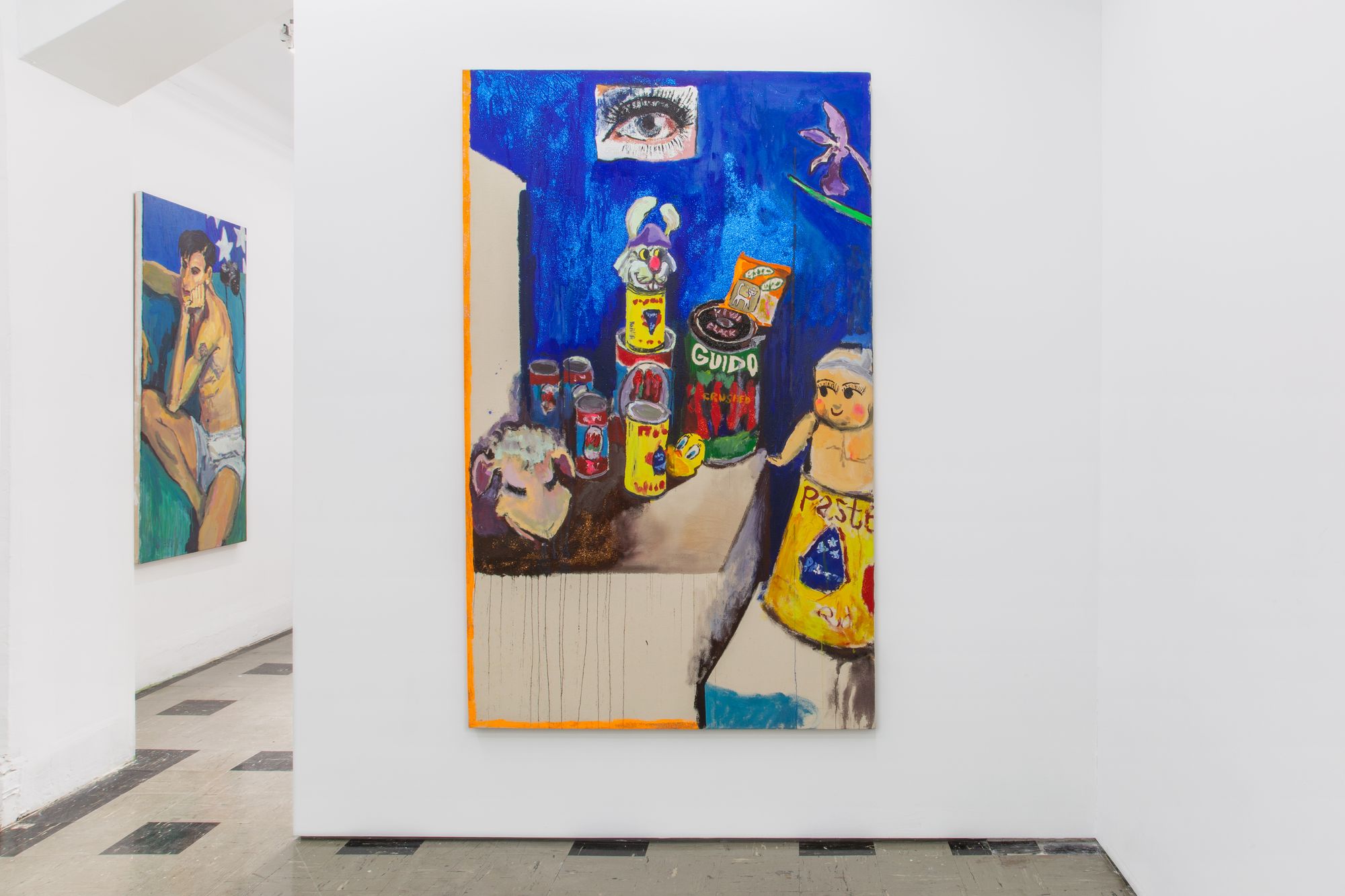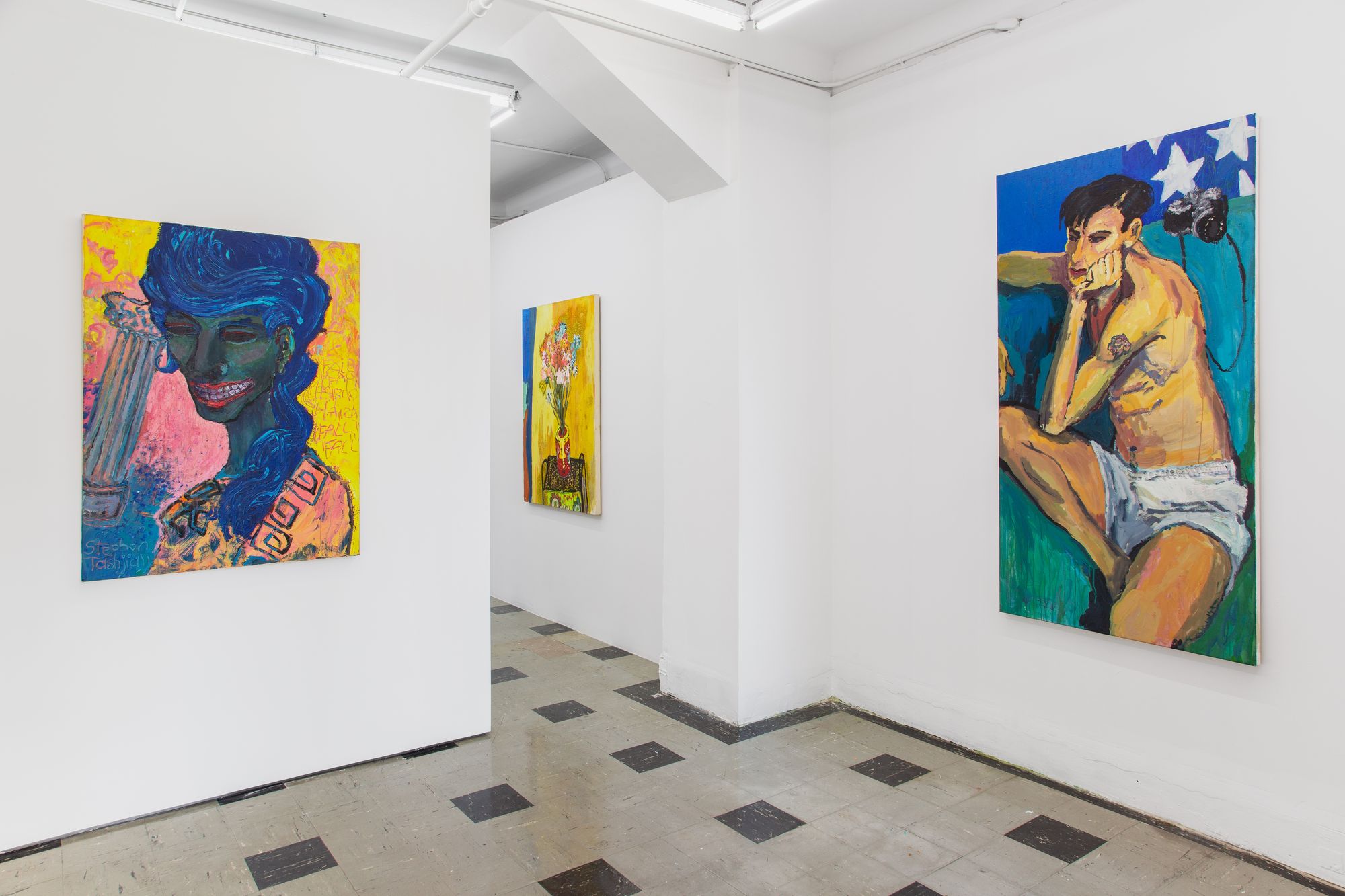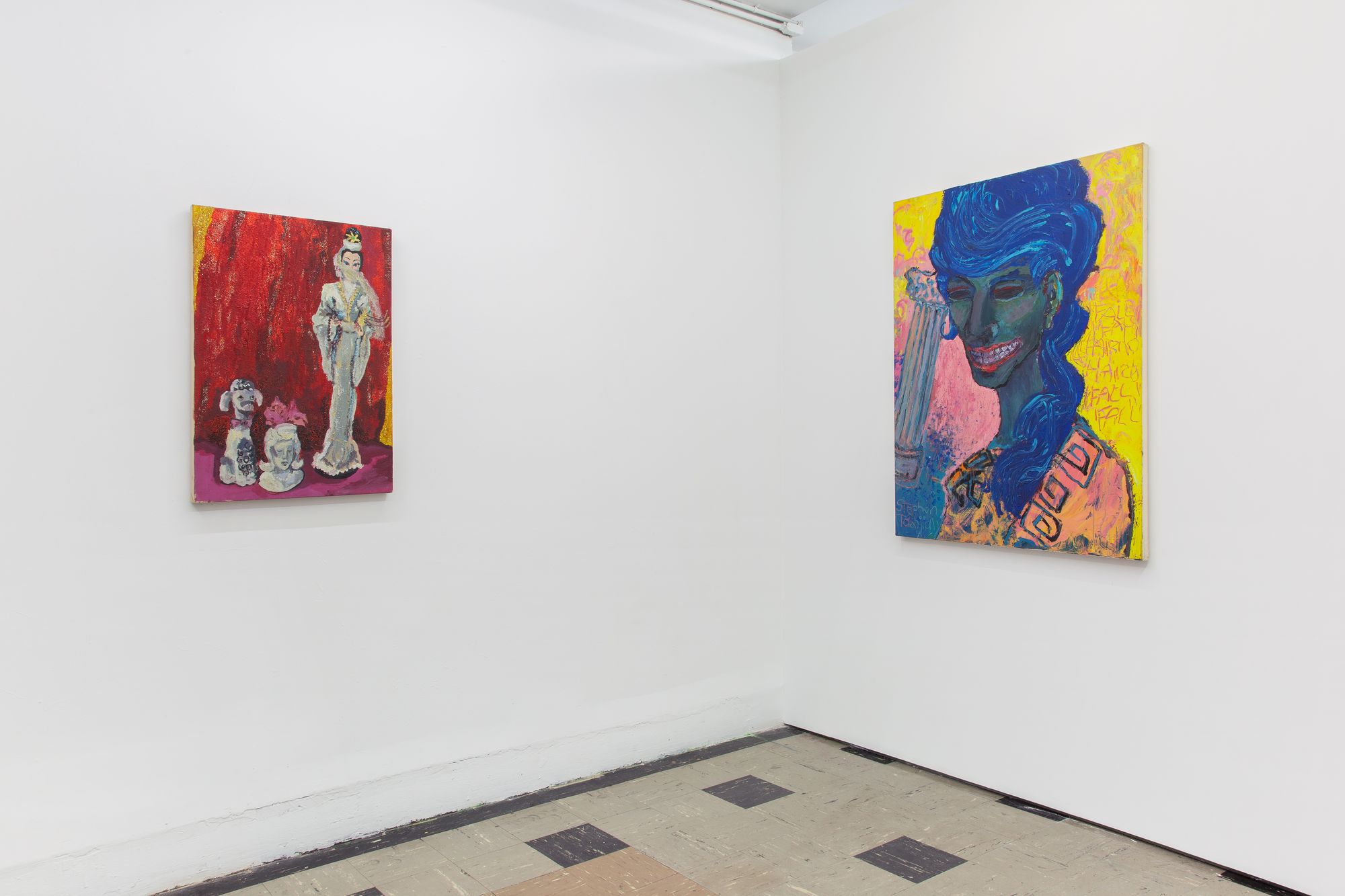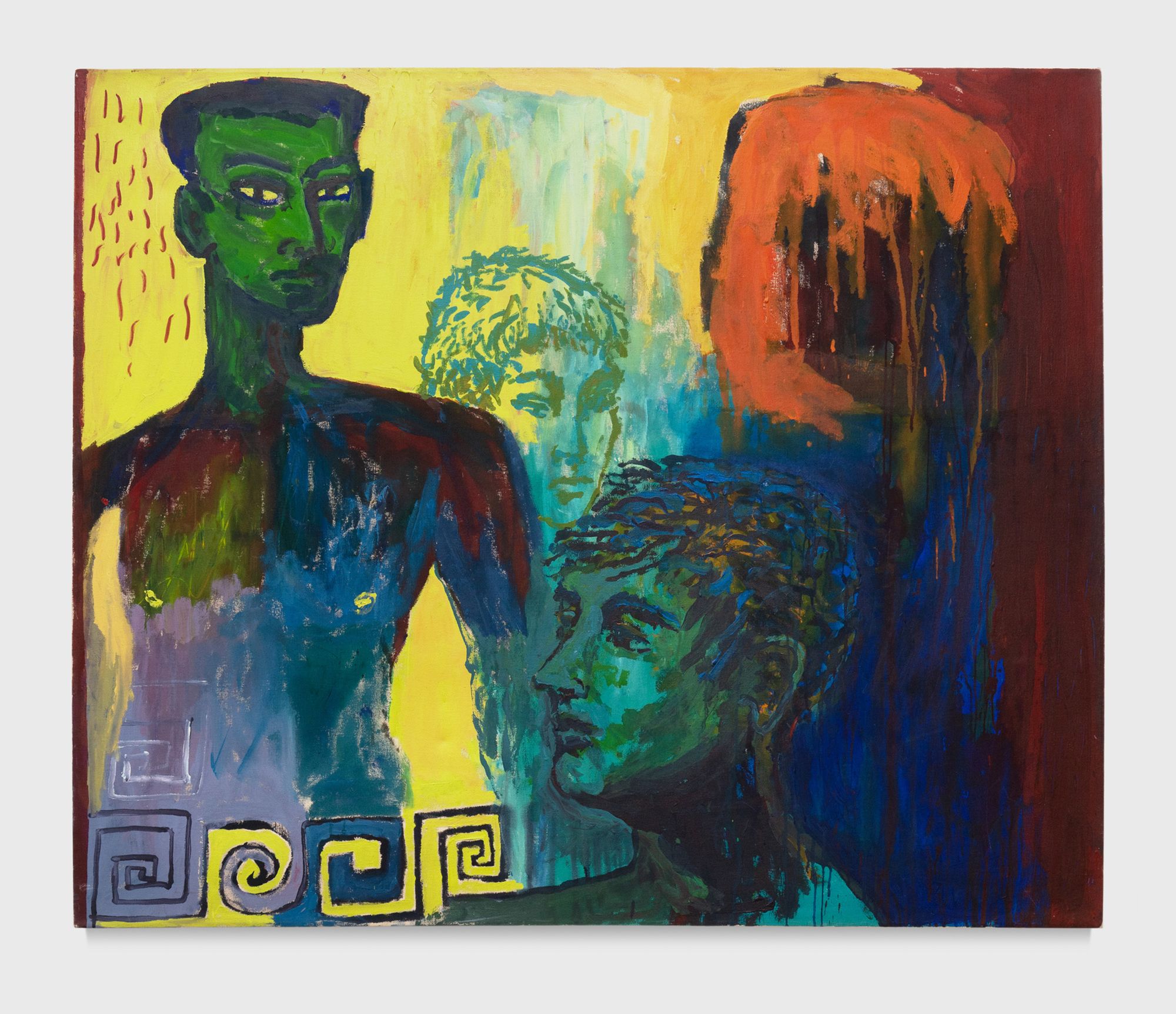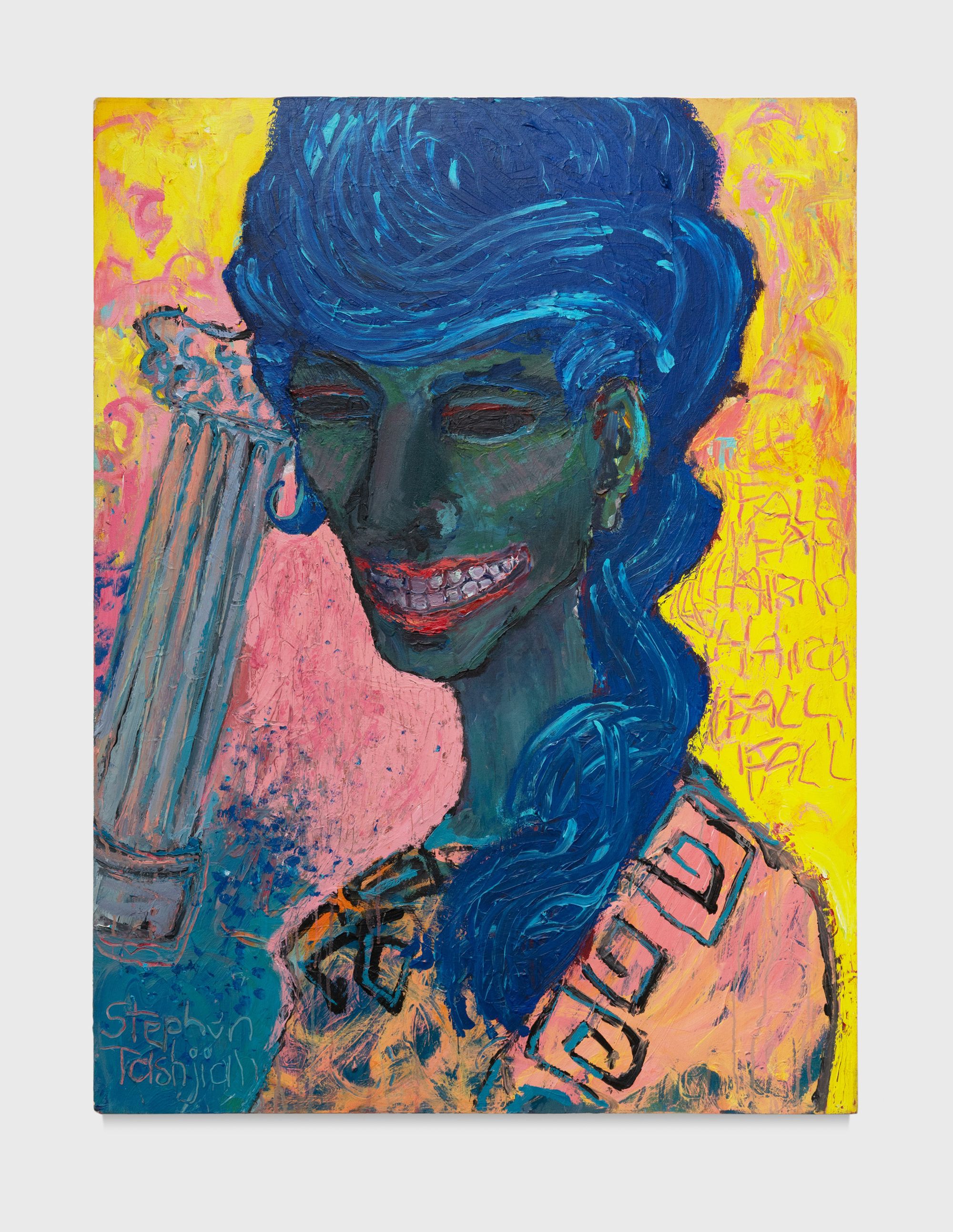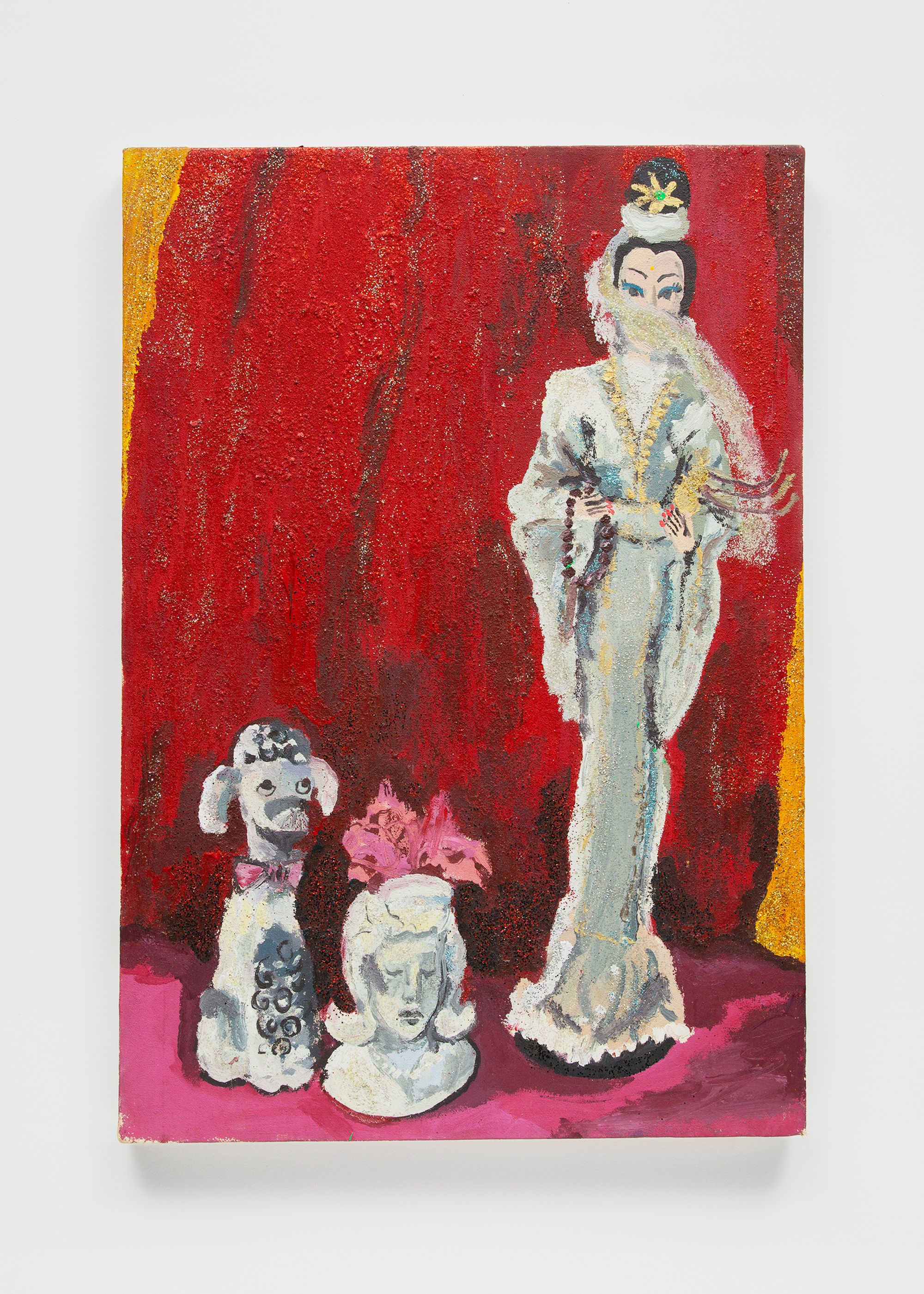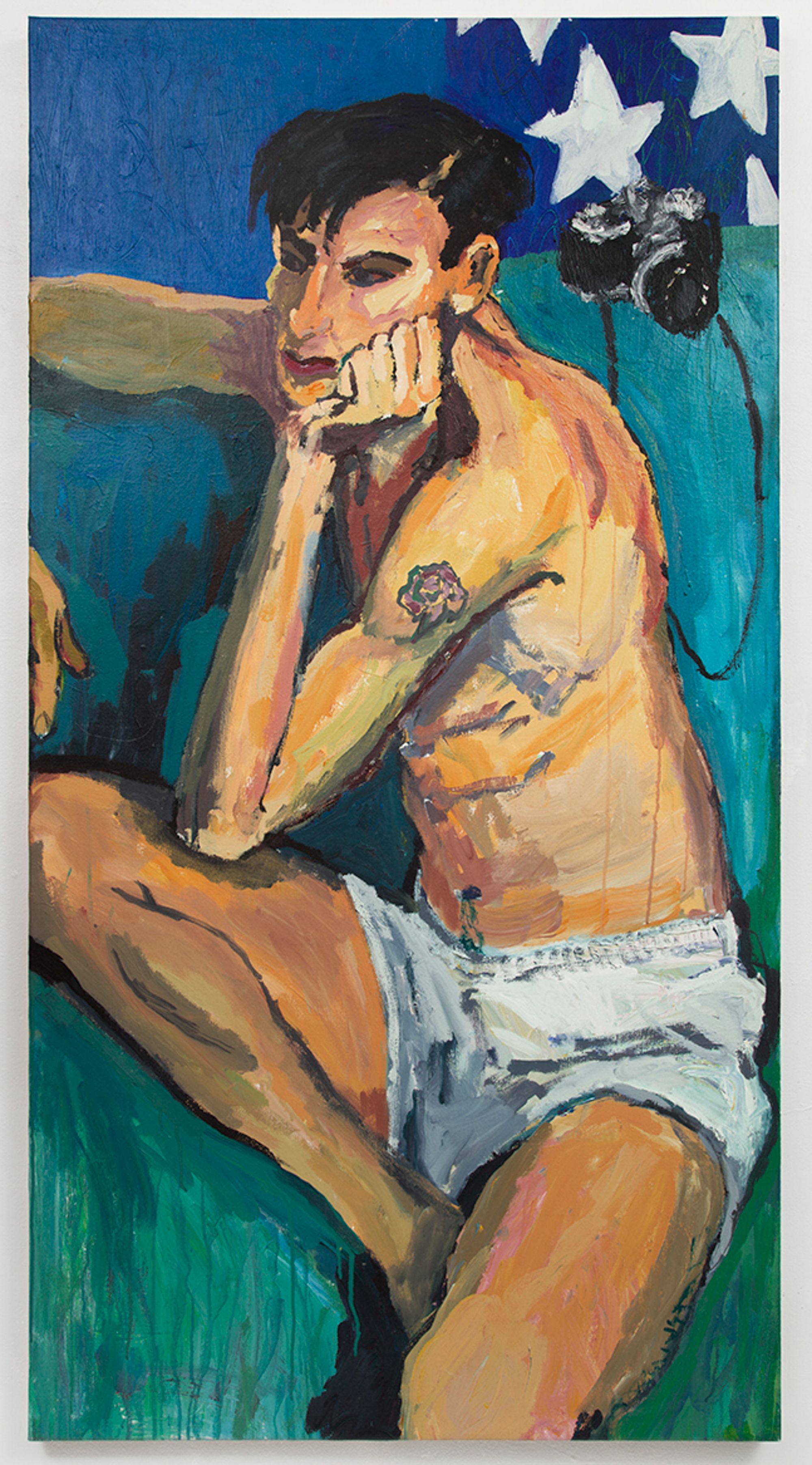
Past
Tabboo!
Tabboo! 1982–1988
Dec. 6, 2020–Jan. 10, 2021
New York
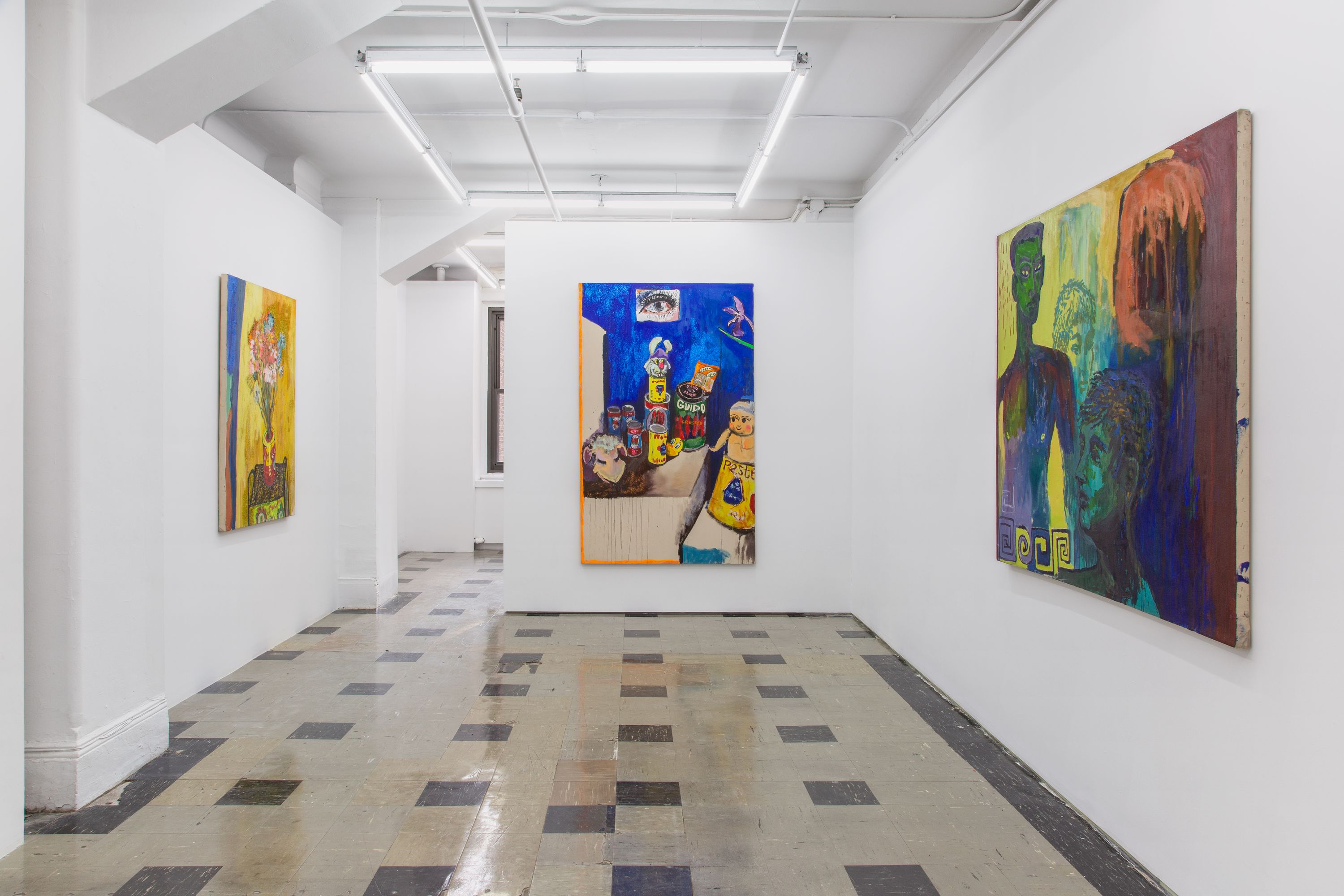
Gordon Robichaux is pleased to present Tabboo! 1982–1988, an exhibition of paintings from Tabboo!’s (Stephen Tashjian) first years in New York, many of which have not been exhibited in over thirty years. In conjunction with the exhibition and as part of Gordon Robichaux’s ongoing collaboration with Karma gallery, Karma Bookstore will present a concurrent exhibition of Tabboo!’s early artwork and ephemera and publish a monograph dedicated to this seminal period in the artist's work.
In 1982, after graduating from Massachusetts College of Art and Design in Boston, Stephen Tashjian moved to New York City with his friend and collaborator Pat Hearn. During their time in Boston, Tashjian and Hearn developed a close group of peers—among them Mark Morrisroe and Jack Pierson—who would move to New York in the following years. During his first months in NYC, Tashjian lived with Hearn in a SoHo loft, performed with her as the band Wild and Wonderful, and scavenged the streets for art materials. By 1983, Tabboo! had made a home and studio in an East Village apartment (where he continues to live and work), and Hearn had opened her namesake gallery. During his first decade in New York, Tashjian performed regularly at Club 57, the Mudd Club, The World, the Mike Todd Room at the Palladium, and the Pyramid Club, most frequently as his celebrated drag persona Tabboo!, a name he soon adopted for all of his artistic production.
In his early paintings, Tabboo! channeled the Neo-Expressionist zeitgeist of the time, materializing faces and still life subjects with aggressive colors, agitated brushstrokes, and dustings of glitter. A number of his early works on paper evidence his material dexterity: it was during this period that he began to water down his acrylic paints to create lush washes and stains of color, a technique he continues to employ to great effect in his work. From the beginning, he painted the subjects he knew best—friends, still life arrangements made with the collection of objects in his home studio, and himself. He mined a range of historical references including Greek key motifs, the artists and culture of the Weimar Republic, psychedelic patterns, calligraphic text, punk collage strategies, and the performative personas of drag, theater, and nightlife, all of which he transformed into his own enduring signature style and vocabulary.
Install (12)


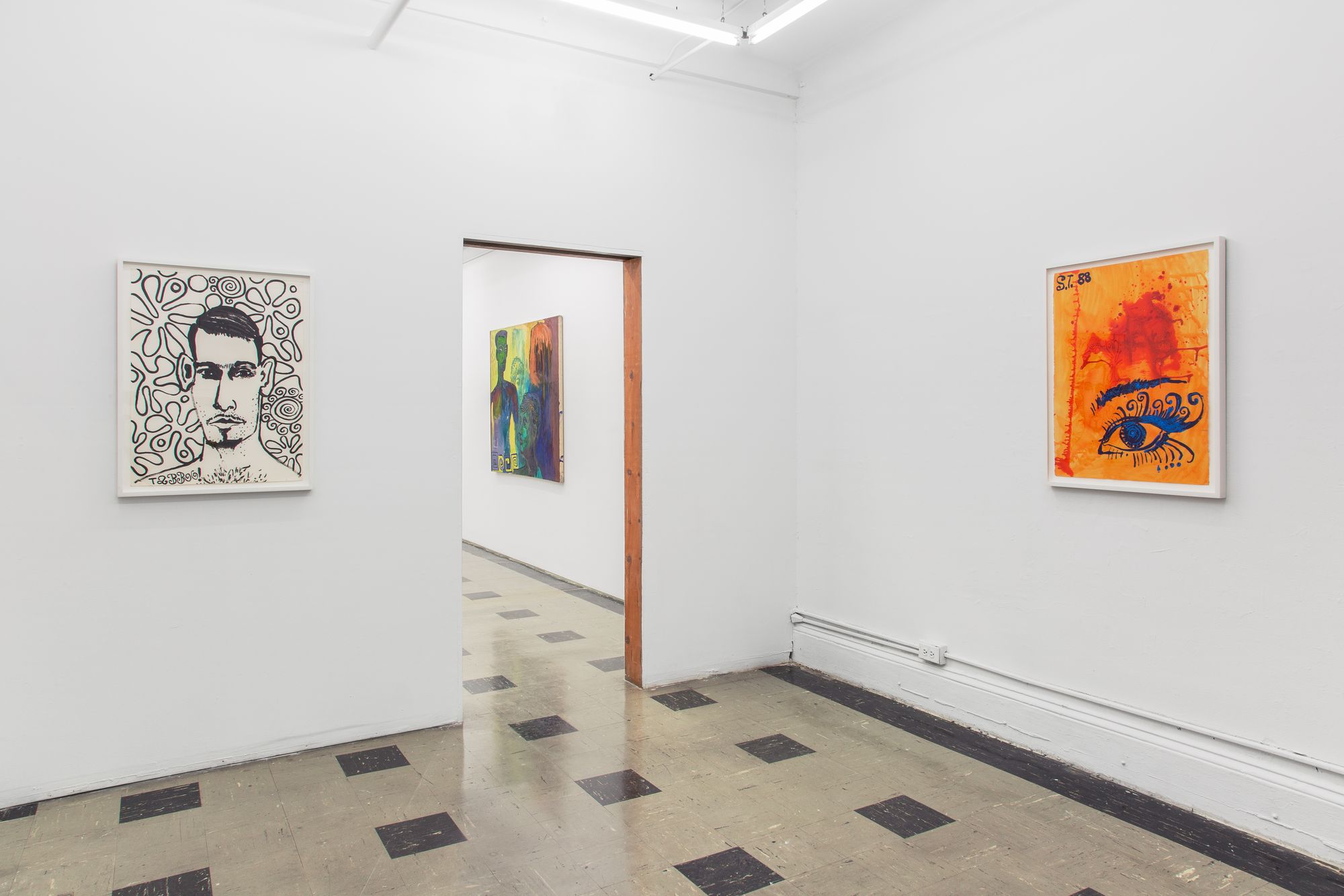



Works
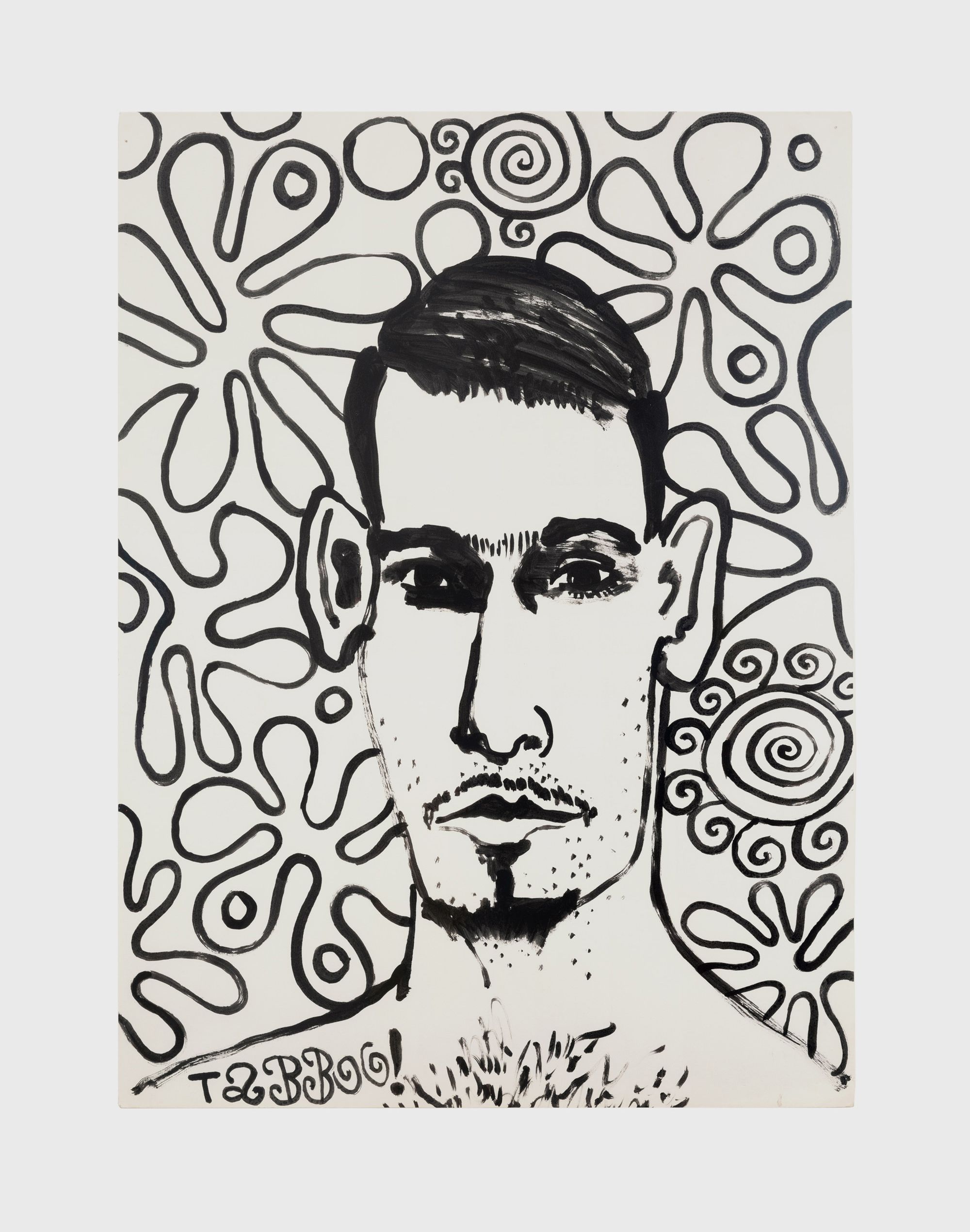
Self-Portrait
Acrylic on paper
30 x 22 inches
c. 1988
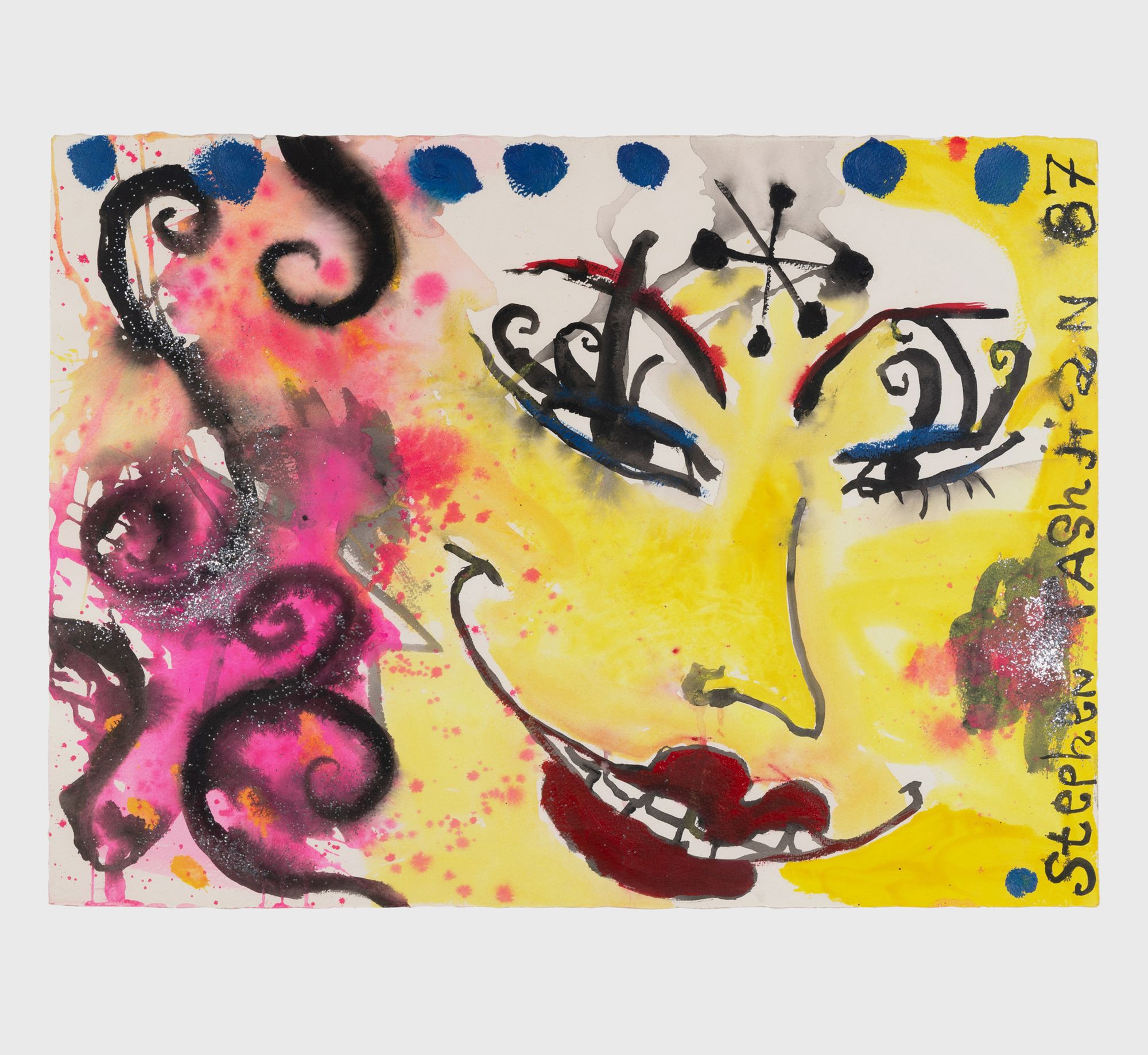
Untitled
Acrylic and glitter on paper
22 x 30 inches
1987
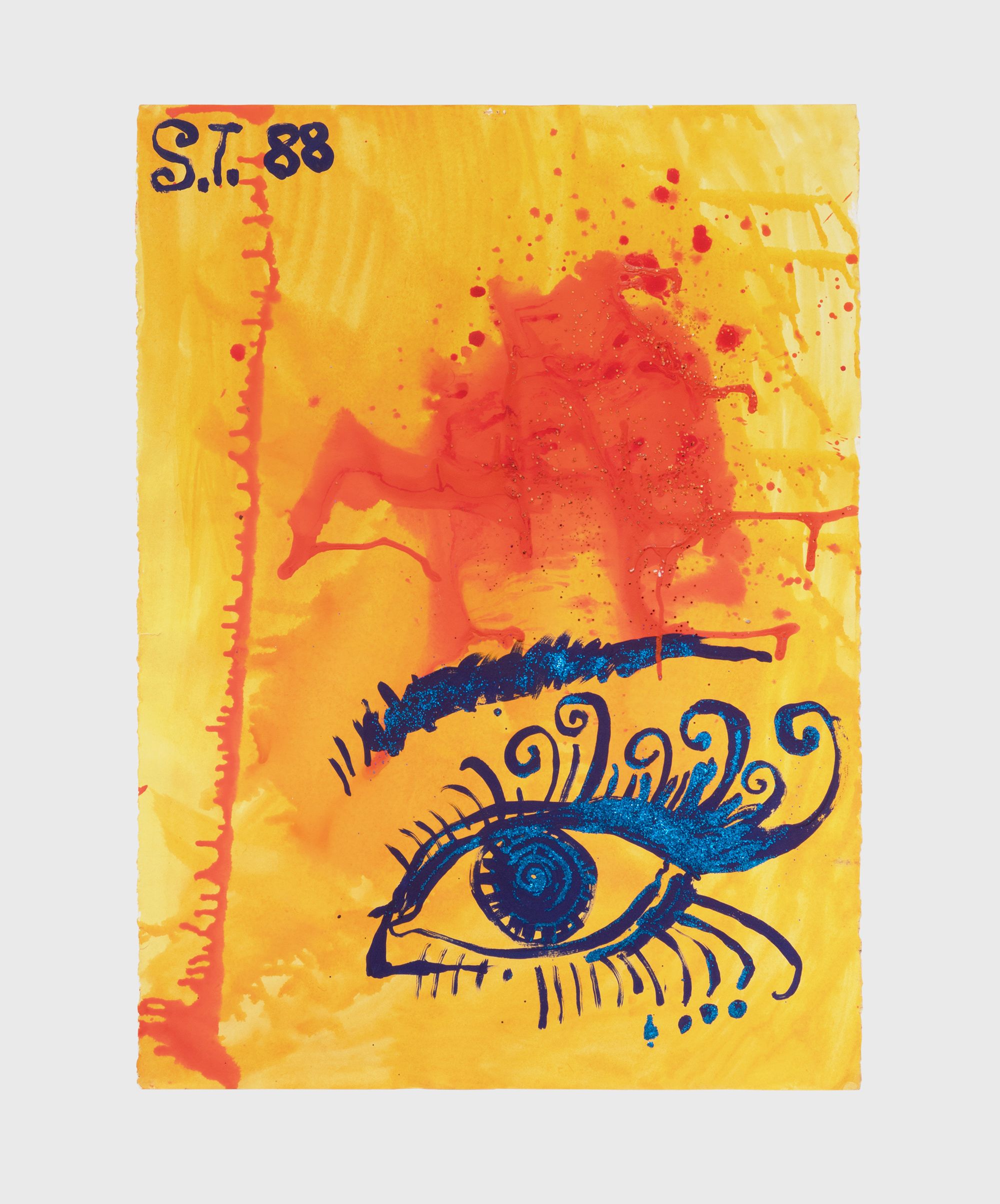
Untitled
Acrylic and glitter on paper
30 x 22 inches
1988
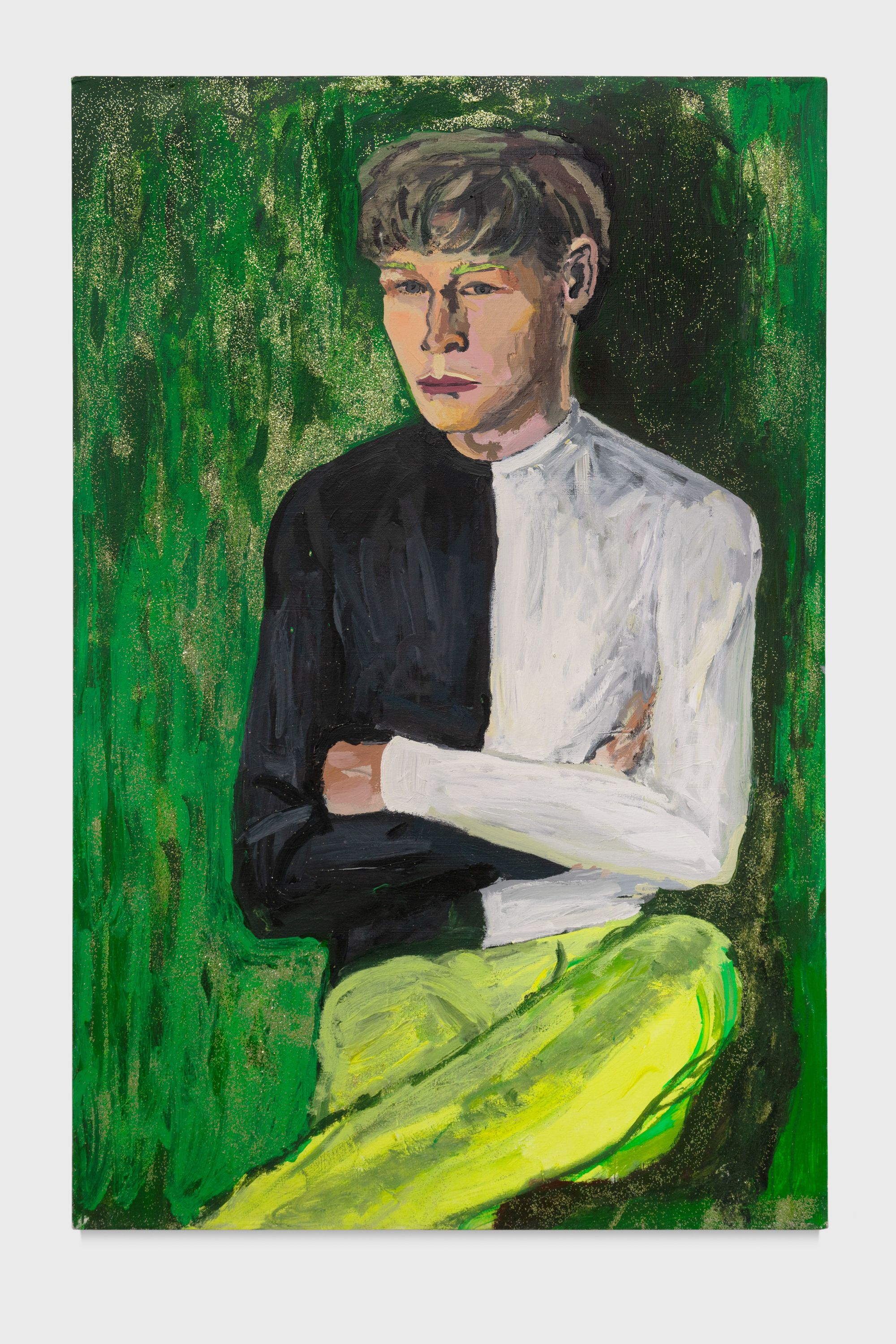
Portrait of Clark Render from the Green Dimension
Acrylic and glitter on canvas
58 x 38 x x 1.25 inches
1986
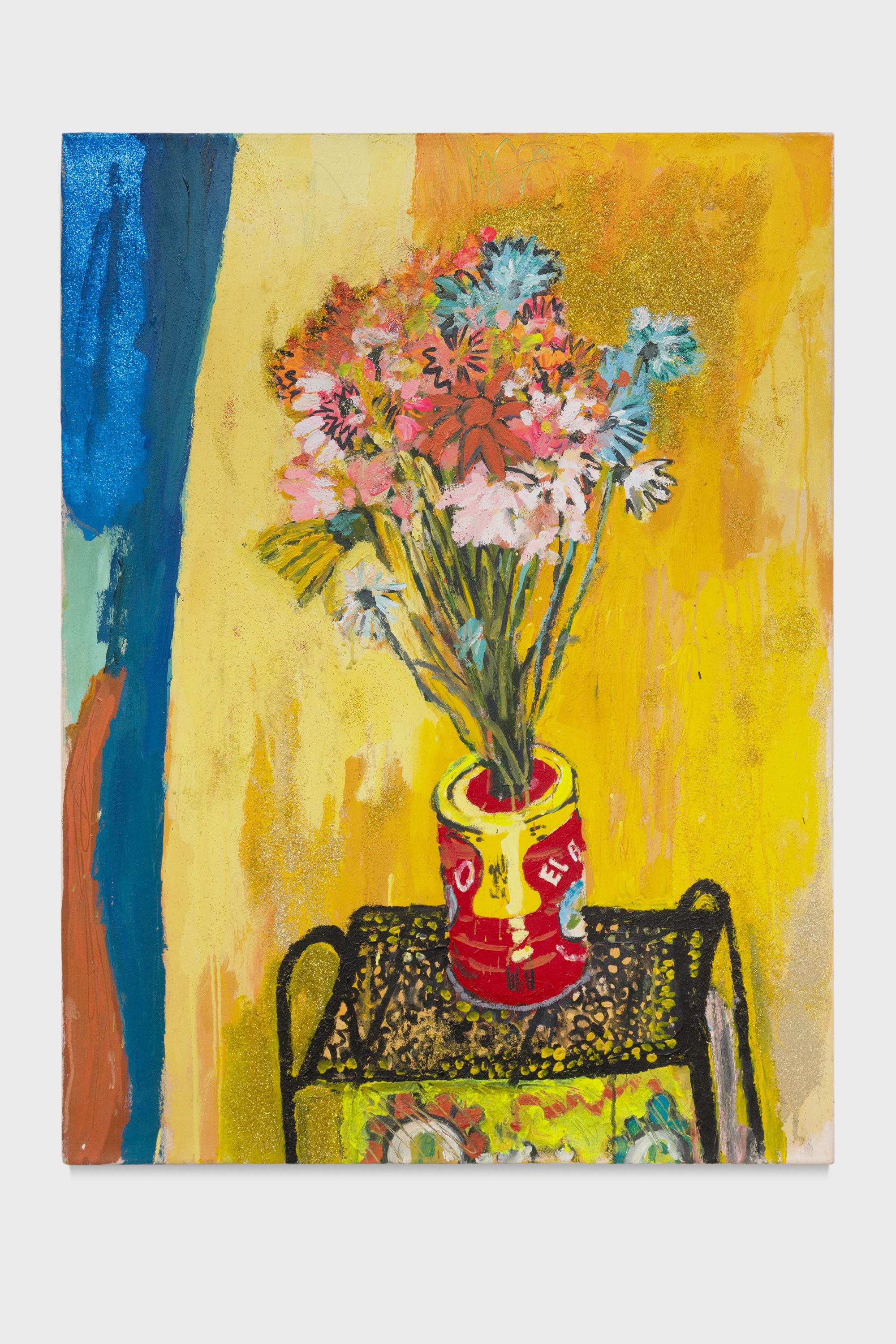
You Can Only Get It in New York
Acrylic and glitter on canvas
52 x 38.5 inches
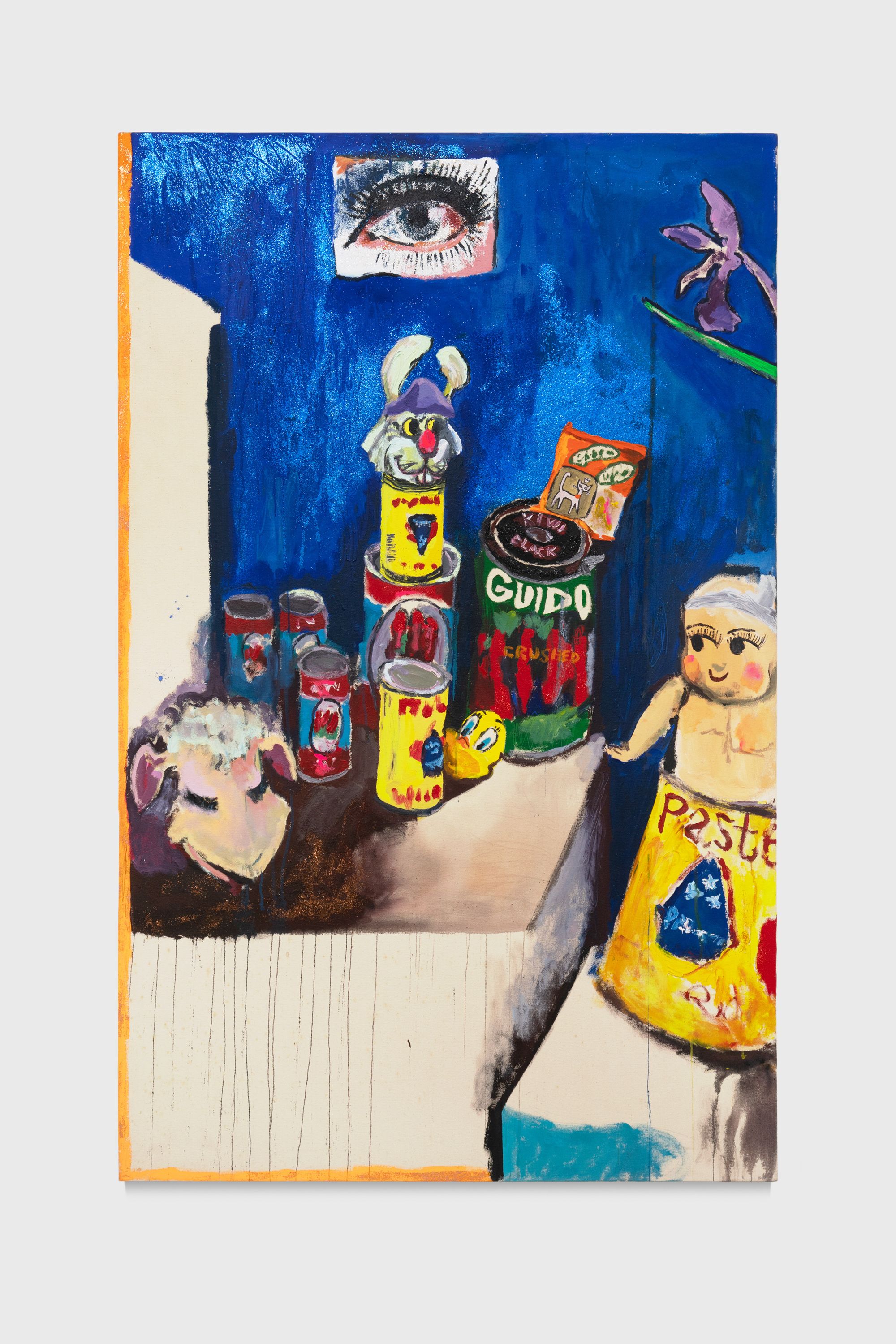
Guido
Acrylic on canvas
78 × 48 inches
1986
Publications
